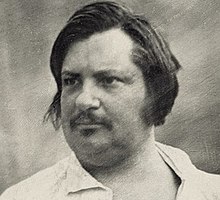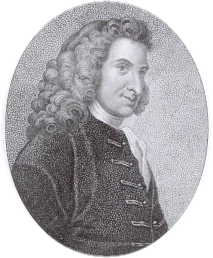 |
| Cover Page |
Description
The Call of the Wild is a classic American Adventure originally published in 1903, in which the author Jack London explores the laws of wilderness and self-centered civilization. The story is set in Yukon, north-west Canada during the 1890s Klondike Gold Rush when strong sled dogs were in high demand. The story lingers around the main character ‘a dog’ named Buck, who is half Saint Bernard and half Scottish Shepherd. He is stolen from his home and comfortable life in Santa Clara, a Valley of California, and sold into services as a sled dog in Alaska.
The author portrays the instinct through Bucks’ eyes. Buck progressively reverts to a wild state in the harsh climate, where he is forced to fight back to dominate other dogs. By the end, he sheds the veneer of civilization, be dependent on primordial instinct and learned experience to emerge as a leader in the wild.
London shares his own experiences as a prospector in the Canadian wilderness.
He did spend almost a year in the Yukon and observed life in the wild for collecting the material for the book.
London was influenced by European authors’ writing style in which themes of heredity versus unnatural habitats or the environment were explored. He used this genre to give a new vibrancy to American literature.
Review
The Call of the Wild is definitely a short story but its gripping ability makes you finish it at once. It takes us on the journey to the wildlife of the great white North of America along with Buck which is definitely unforgettable. Buck- the dog, is the protagonist in this charismatic theme of writing.
Jack London circumscribes the life of Buck from its natural habitats on the west coast to the harsh climate of the north. The journey from diligent and comfortable life in California to become a beast of the wild with learning to fight back for survival. It is definitely an action pack and adventurous story which makes the entire journey intriguing to prohibit having a long break.
Much of its appeal derives from its simplicity as a tale of survival.
The book’s great popularity and success made a reputation for London in the literature world.
Adaptation
John Griffith London was an American novelist, journalist, and social activist who was born in San Francisco, California on January 12, 1876, as John Griffith Chaney. He was one of those writers who become a worldwide celebrity and possessed a large fortune from writing. He was a world-class pioneer of commercial magazine fiction and was also an innovator in the genre that have later known as science fiction. London was part of the radical literary group 'The Crowd’ in San Francisco and a passionate advocate of unionization, worker's rights, socialism, and eugenics. he wrote several works dealing with these topics, such as his dystopian novel The Iron Heel, his non-fiction expośe The People of the Abyss, The War of Classes, and Before Adam.
His most famous works are The Call of the Wild and White Fang, both set in the Klondike Gold Rush as well as the short stories To Build a Fire, An Odyssey of the North, and Love of Life. He also wrote about the South Pacific in stories such as The Pearls of Parlay, and The Heathen.
The Call of the Wild is definitely a short story but its gripping ability makes you finish it at once. It takes us on the journey to the wildlife of the great white North of America along with Buck which is definitely unforgettable. Buck- the dog, is the protagonist in this charismatic theme of writing.
Jack London circumscribes the life of Buck from its natural habitats on the west coast to the harsh climate of the north. The journey from diligent and comfortable life in California to become a beast of the wild with learning to fight back for survival. It is definitely an action pack and adventurous story which makes the entire journey intriguing to prohibit having a long break.
Much of its appeal derives from its simplicity as a tale of survival.
The book’s great popularity and success made a reputation for London in the literature world.
Adaptation
- The story was serialized in the Saturday evening post in the summer of 1903; It was published a month later in book form. The book was a huge success and made a reputation for London.
- As early as 1923, the story was adapted to a silent film and after that, it has been adapted for several more cinematic projects.
- In 1935, A film to feature the story was the first 'talkie' with the expanded John Thornton's role.
- In 1972, another movie was filmed in Finland with the original name The Call of the Wild.
- In 1978, Snoopy TV special What a Nightmare, Charlie Brown was another adaptation of the story.
- In1981, An animated film titled Call of the Wild: Howl Buck was released.
- In 1996, another adaptation was a film called The Call of the Wild: Dog of the Yukon.
- In 1998, A comic adaptation was made for Boys' Life magazine. In this version, Yeehat Indians are omitted and John Thornton's killers are now the white criminals out of the concern of cultural sensitivities, who as before, are also killed by Buck.
- On February 21, 2020, a live-action/computer-animated film was released by 20th Century Studios. The film adaptation was titled The Call of the Wild which was directed by Chris Sanders.
John Griffith London was an American novelist, journalist, and social activist who was born in San Francisco, California on January 12, 1876, as John Griffith Chaney. He was one of those writers who become a worldwide celebrity and possessed a large fortune from writing. He was a world-class pioneer of commercial magazine fiction and was also an innovator in the genre that have later known as science fiction. London was part of the radical literary group 'The Crowd’ in San Francisco and a passionate advocate of unionization, worker's rights, socialism, and eugenics. he wrote several works dealing with these topics, such as his dystopian novel The Iron Heel, his non-fiction expośe The People of the Abyss, The War of Classes, and Before Adam.
His most famous works are The Call of the Wild and White Fang, both set in the Klondike Gold Rush as well as the short stories To Build a Fire, An Odyssey of the North, and Love of Life. He also wrote about the South Pacific in stories such as The Pearls of Parlay, and The Heathen.
He died on November 22,1916 at his home in Glen Ellen, California. His death was a matter of debate and still going on. Few considered it suicide as he was going through many illnesses and a poor recovery rate. His was cremated and his ashes were buried on his property next to pioneer children of wolf house.
 |
| Jack London |
Link to buy more books on amazon :
Rating: 4.2/5
Author: Jack London
Publisher: Maple Press
Publishing Date: 1 September 2012
Language: English
Genre: Action/Adventure, Classic Fiction book
ISBN-10: 9380005454
ISBN-13: 978-9380005454
Pages: 140












